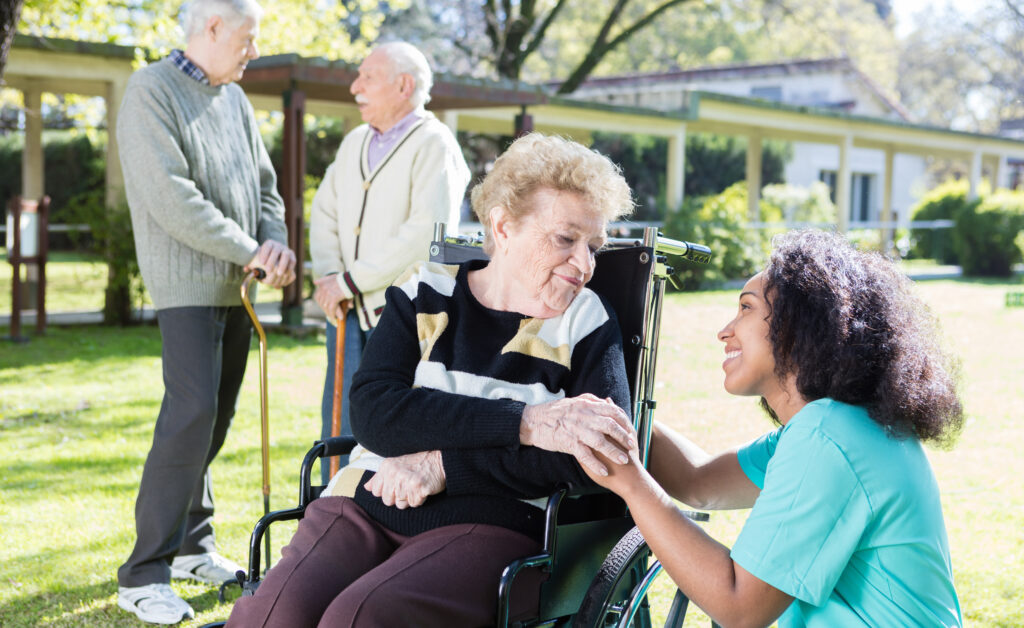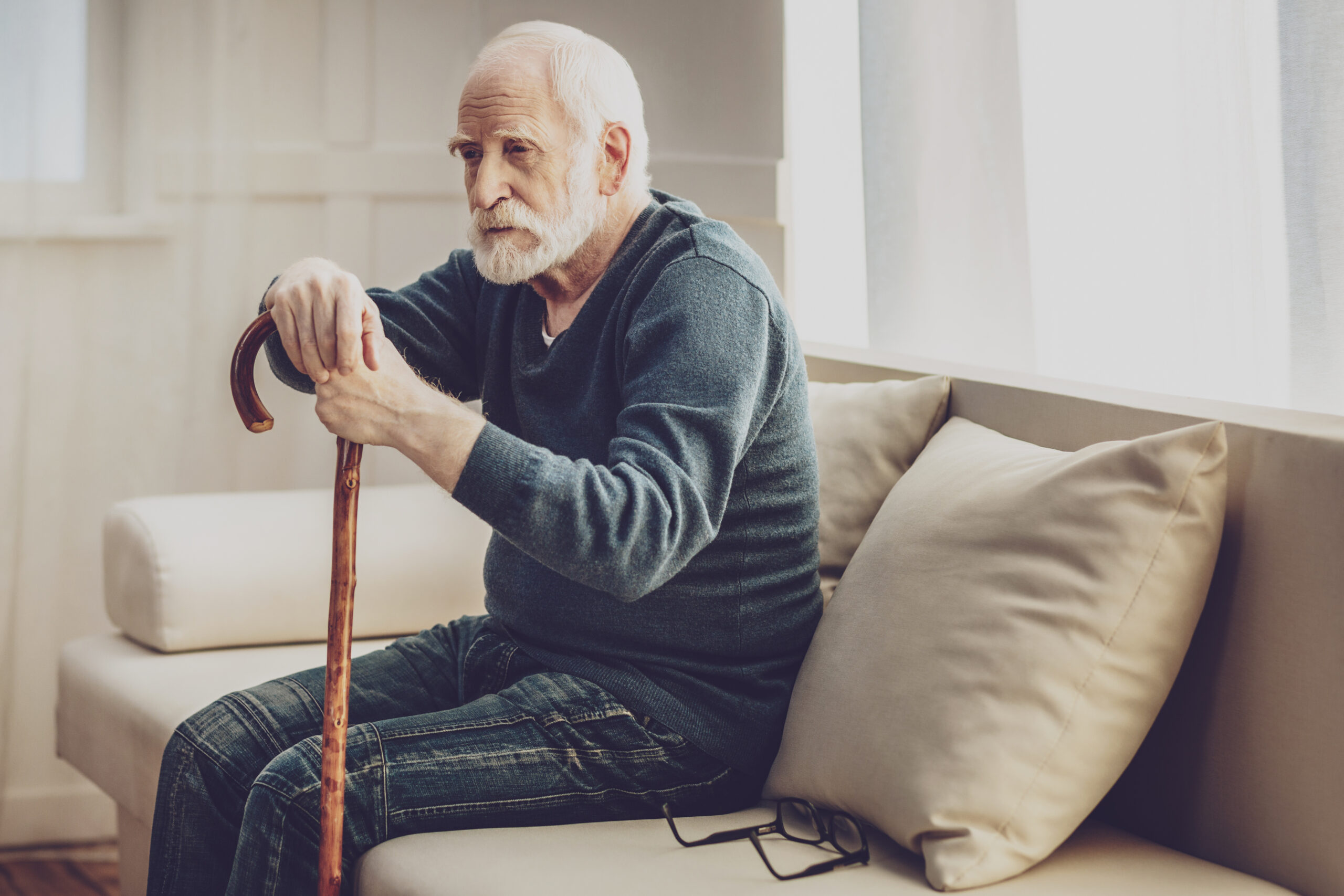Caring for seniors is a deeply rewarding yet complex voyage for both family caregivers and senior living communities. Behavioral Health concerns such as depression and anxiety are high and access to behavioral healthcare is limited for many reasons. At the heart of this mission is the well-being of our elders, which extends beyond physical health to encompass a critical yet often overlooked facet—mental health. Senior care is not just about managing physical ailments and daily activities but also about understanding and addressing the unique mental health needs of the elderly.

The Rising Tide of Senior Mental Health Concerns
The statistics on senior mental health tell a compelling story. The National Institute on Aging found that over 20% of adults aged 65 and older experience a mental health concern, with depression and anxiety being the most common. With the global population of adults aged 60 and older set to double by 2050, there has never been a more critical time to address mental well-being in our senior populations.
The term ‘sandwich generation’ has been coined to describe the demographic of middle-aged adults who are caring for both their children and their aging parents, highlighting the increased burden on mental health for caregivers.
As one of the tragedies born out of the pandemic, we are now working to meet the mental health needs of our aging adults. Isolation and seclusion were very hard on our seniors who often found themselves unable to connect with family. Our elders that did not have cognitive challenges such as dementia could speak on the phone so that helped a little.
Since the pandemic access to healthcare especially specialists including behavior health has been a nightmare. 3-6 months before you can see a specialist such as neurology, endocrinology, pain clinics, and so many others. This is still an issue today.
One of the ways we can help increase access has been a technology born out of the pandemic as well and that is telehealth. I was very much a skeptic when it first came out. How can a doctor treat a patient when they are not even in the same room? I know there has been remote monitoring programs for chronic diseases such as Congestive Heart Failure around for a bit but how do you examine some one?
Technology and Innovative Care Management Solutions
The adoption of telehealth services is rapidly expanding, providing seniors with greater access to mental health support in the comfort of their homes. Innovations such as medication management apps and remote monitoring tools are simplifying adherence to treatment and increasing engagement.
Dr James Williams, MD spent quite a bit of time with us sharing information about his practice. His practice is all virtual now and we asked him all the hard questions and shared my skepticism about exams, seniors and technology, the whole works. Dr Williams was very gracious and addressed them all! Here is the video recorded during our senior care summit 2024. I am now more of a believer with telehealth and using with our aging adults.
Uncovering the Depths of the Problem
We talked about the Pandemic but there are other reasons as well. Seniors themselves often underreport their symptoms, considering them a natural part of aging or fearing the stigma associated with mental health problems.
I see this with my clients as well. It makes it hard to get the proper treatment when they are hesitant to see behavioral health. The problem is many family practice physicians and primary care providers are not comfortable regulating and using some of the medications used in managing behavioral health challenges. Many times, a geriatric practitioner is the one regulating medications for dementia. As a nurse advocate, in this situation we were able to recognize the need for a possible medication change and facilitate this through her doctor.
Secondly, caregivers dealing with the complexities of aging often neglect their loved ones’ mental health needs. The system, as it stands, is under immense pressure to evolve and adapt to these alarming trends. Many times it is very easy to look at some of these mental health challenges such as depression and anxiety as an expected part of aging or dementia.
The Winds of Change in Senior Care Trends
Thankfully, shifts in senior care trends are beginning to steer the conversation toward integrated approaches that include mental health. We’re seeing a move away from traditional, one-size-fits-all models toward more personalized, holistic care. Here are some of the trends reshaping the landscape:
Personalized and Holistic Care Plans
The emerging norm is to develop individualized care plans that address the complete spectrum of seniors’ well-being, including mental health. These plans consider personal preferences, daily routines, and the social environment to foster a sense of autonomy and purpose.
Patient Advocacy is becoming more well-known. Guides that can come in and help clients and families navigate the healthcare system meeting some of these challenges head on and working to move families towards solutions and positive outcomes. Join us for a free webinar where we will break down the Top 3 Trends in Senior Care and how they may impact your family. Use our webinar workbook to determine how these 3 trends might change the way you care for your aging loved ones. We will continue to look at Mental Health Concerns, Aging in Place and the last trend Multigenerational Living.

Community for the Aging
Communities dedicated to the aging that focus on social and cultural engagement are proving to be effective in staving off mental health issues. Whether through book clubs, wellness programs, or technology classes, these environments offer a space for seniors to connect and grow, providing a strong safeguard against loneliness and isolation. The aging centers such as the Aging and Disability Resource Centers, which have many names but are the government county resources every county often has computers and assistance to help seniors learn and manage technology. There are even companies now that specialize in teaching and training our seniors how to use technology.
The Compassionate Challenges of Senior Caregiving
Despite these promising trends, family caregivers face unprecedented challenges. The AARP and the National Alliance for Caregiving found that 40% of caregivers report moderate to high levels of psychological distress, which can impact their ability to provide care and support.
Breaking Through the Stigma
In many cultures, the acknowledgment and treatment of mental health issues are still taboo, creating barriers to accessing care for seniors. Overcoming the stigma requires patience, understanding, and a concerted effort to educate and normalize the conversation around mental health.
Navigating the Healthcare System
The complexity of the healthcare system can be overwhelming for both seniors and their caregivers. Understanding insurance policies, coordinating appointments, and managing medications are just a few of the tasks that can challenge even the most dedicated family members. Again patient advocates such as Your Nurse Advocate Consulting can come alongside families and guide them through the healthcare system.
Strategies for Sailing Serenely Through Senior Mental Health
While the challenges are monumental, there are actionable strategies that can set you on course for a smoother caregiving experience. The following tactics have been shown to make a significant difference in the mental health of seniors:

Engaging Activities
Regular engagement in activities that seniors enjoy can significantly improve their mood and overall mental health. From crafting to gardening, finding hobbies that provide a sense of purpose and accomplishment can be incredibly therapeutic.
Physical Health and Nutrition
There’s an intimate connection between physical and mental health. Encouraging a balanced diet and exercise can alleviate symptoms of depression and anxiety. For caregivers, meal planning and exercise routines can be a shared activity that benefits everyone involved.
Open Communication
Creating an open dialogue about mental health can help seniors feel seen and understood. This requires patience and active listening, as well as a willingness to discuss difficult emotions and experiences.
Setting Sail for a Brighter Future in Senior Mental Health
In conclusion, it’s evident that addressing senior mental health is an integral part of quality care in our aging population. With the right strategies and support systems in place, caregivers and senior living communities can create an environment that nurtures the mental well-being of our seniors. It’s a voyage that starts with understanding, progresses through personalized care and innovation, and arrives at the shores of dignity, peace, and fulfillment for our elders.
Thanks for taking the time to stop by and spend a few minutes with us. Below we have shared some resources for you as we prepared for this post as well as some free resources from us, Your Nurse Advocate Consulting.
Take care and see you soon,
Pam and Linda
“Compassionate care for aging parents, Peace of mind for adult children.”
RESOURCES
Your Nurse Advocate Consulting Free Resources
30-Minute Free Consultation with Your Nurse Advocate Consulting
Free Weekly Newsletter: Senior Saturday
https://www.nia.nih.gov/health/brain-health/cognitive-health-and-older-adults






